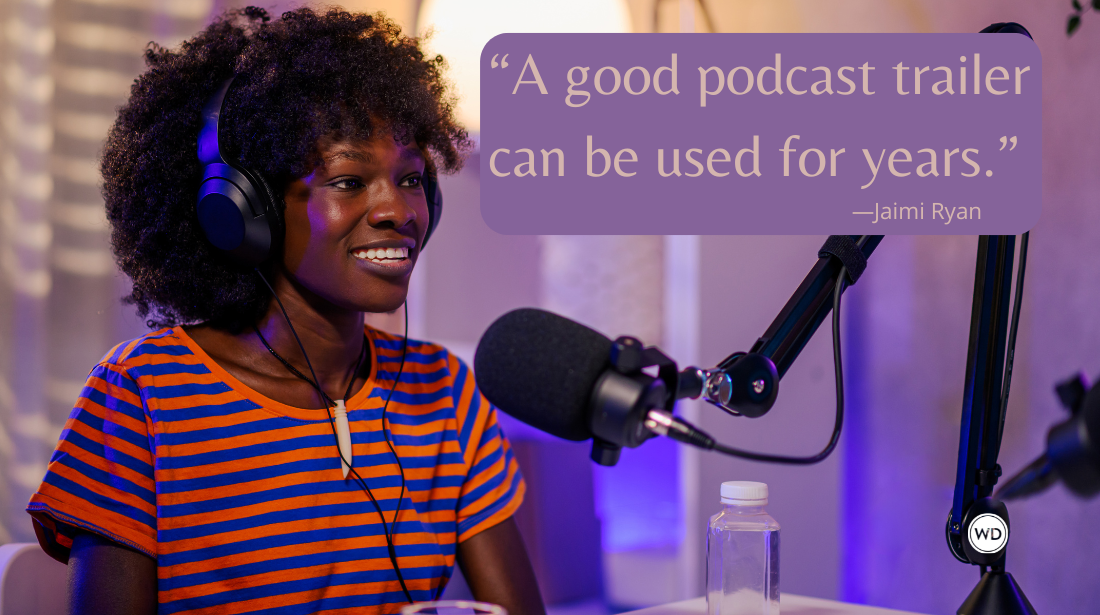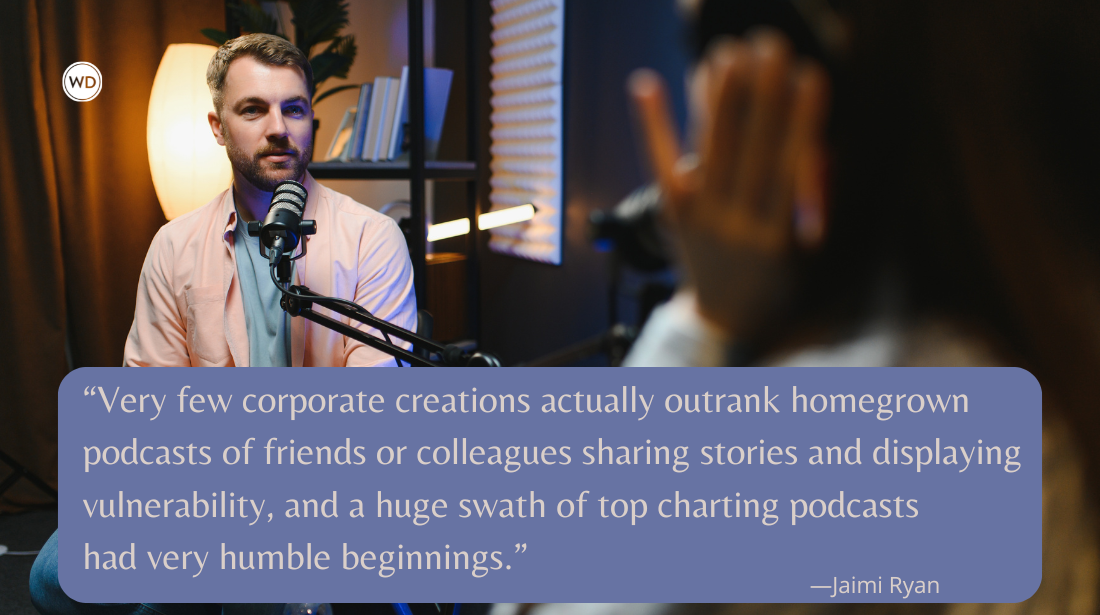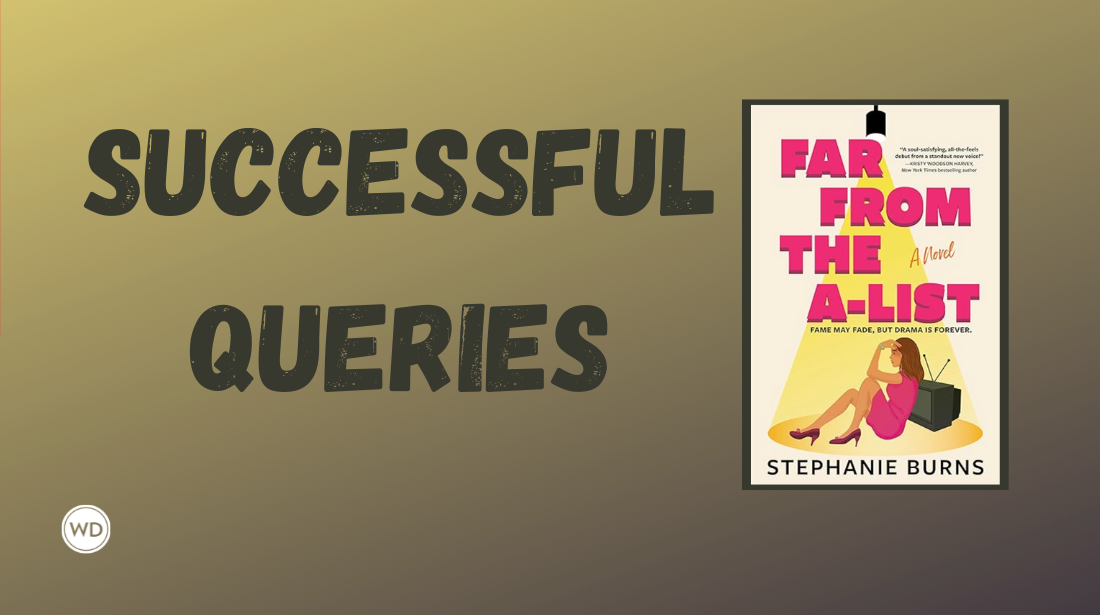How to Write the Perfect Query Letter
A literary agent shares a real-life novel pitch that ultimately led to a book deal—and shows you how to query your own work with success.
One of the easiest ways to learn what makes a good, standard query letter is simply to see an example of one that does its job well. If you write fiction or narrative nonfiction, a query letter is your first (and often, your only) chance to get an agent interested in reading (and, with hope, signing) your work. You should put just as much care and attention into crafting and polishing your query as you did into your manuscript. After all, if your pitch doesn’t hit its mark, your book will never leave your desktop.
Following is a successful query for a middle-grade novel that led to me first requesting this full manuscript and later signing on to represent the author, Dianna Dorisi Winget. Her debut book, A Smidgen of Sky, went on to sell to Harcourt and hits shelves this fall.
No matter what you’re writing—fantasy, thriller, sci-fi, romance—or whether you’re writing for children or adults, there’s a lot you can learn from this example about conveying characters clearly and getting an agent invested in your story in just one short page.
Example of a Query Letter
Dear Ms. Kole,
[1] According to your agency’s website you’re actively seeking middle-grade fiction, so I’m pleased to introduce my novel, A Smidgen of Sky. [2] This novel won me a scholarship to attend the Highlights Foundation Writers Workshop at Chautauqua. It was also awarded honorable mention in the Smart Writers W.I.N. Competition.
[3] A Smidgen of Sky is the story of ten-year-old Piper Lee DeLuna, a spunky, impulsive dreamer, whose fierce devotion to her missing father is threatened by her mother’s upcoming remarriage.
[4] Everyone else has long accepted her father’s death, but the fact that his body was never recovered from his wrecked plane leads to Piper’s dream that he might one day reappear and free her from the secret guilt she harbors over his accident. Her stubborn focus leaves no room in her affections for her mother’s fiancé, Ben, or his princess-like daughter, Ginger.
[5] Determined to stop the wedding, Piper Lee schemes up “Operation Finding Tina”—a sure plan to locate Ben’s ex-wife and get the two of them back together. But just as Piper succeeds with step one of her plan, a riot breaks out at the prison where Ben works, and suddenly nothing seems sure.
[6] Since middle-graders care deeply about things and people and love to daydream about their future, I think readers will identify with Piper Lee and find her an appealing heroine as she learns that you can both cherish the past and embrace the future.
[7] This story, set in the coastal region of Georgia, runs about 33,000 words and is somewhat similar in tone to Kate DiCamillo’s Because of Winn-Dixie.
[8] I’m a 1990 graduate of the Institute of Children’s Literature and my work has been published in U*S* Kids, Child Life, Columbia Kids, True Love, Guide and StoryPlus.
Thanks very much for your time. I have included the first ten pages and look forward to hearing from you.
Truly yours,
Dianna Winget
Agent Comments on Query Letter Example
[1] This is pretty basic personalization, but it shows me that Dianna did her research. In your query, make it clear that you’ve done your homework and are querying this particular agent with good reason. Agents like to see signs that you’re a savvy writer who is deliberate about the submission process—that bodes well for your working style, should we partner with you in the future.
[2] It’s unusual to lead with accolades, but in the children’s world, the Highlights Chautauqua workshop is a big deal, so this got my attention. If you have similar achievements, by all means, shout them from your opening paragraph! If not, just dive right in and start telling me about your novel.
[3] In setting up your story, you absolutely must convey a sense of what your main character wants most in the world, and of what’s standing in her way, as Dianna does here. We care about Piper Lee right away because we know what she cares about, and this is key.
[4] We get a good sense of Piper’s character here; it’s important that your query not just flatly tell us about your characters, but show us who they are. The conflict (another essential element of all compelling fiction) rises when the fiancé and future stepsister are introduced. Dianna does a great job of establishing her protagonist’s denial, and she’s already built a lot of tension when she hints at what will soon shatter it. This further demonstrates that her story is driven by strong character motivations—just as any good page-turner should be.
[5] This gutsy scheme teaches me even more about Piper Lee. It’s also bound to have some disastrous consequences, and that’s exactly what agents want to see in a novel: strong actions, strong ramifications, and lots of emotions tied to each.
[6] This is a bit of self-analysis that I wish writers wouldn’t indulge in when writing queries. Dianna could’ve easily left this paragraph out (especially the vague “since middle-graders care deeply about things and people”) and let the strength of the story speak for itself. Of course you think the book is thematically resonant and that readers will love it—you wrote it! So refrain from editorializing. That said, this still makes this letter a great example to show here—because it’s proof that even a query faux pas won’t result in an instant rejection. If you sell your story well enough, agents will overlook small missteps.
[7] This simple sentence is a great and concise summary of necessary information. When you query, be sure to include the stats of your manuscript (genre, target audience, word count, etc.) and any relevant comparative titles—with a caveat: Be sure to highlight a comp title only if it helps the agent get an accurate picture of the style of your story and if it doesn’t smack of delusions of grandeur. Claiming you’re “James Patterson meets Dan Brown” is useless. Dianna’s comparison here was quite apt and, again, made her seem savvy—and realistic.
[8] The bio paragraph and sign-off are short and sweet, and that’s really all we need. If you’ve hit on the basics well and conveyed the essence of your story and why it’s a good fit for that particular agent, you’ve done all you can to entice us to request the full manuscript.
*****
Learn more about query letter writing in the online course How to Query Letter in 14 Days, from Writer's Digest University.
Mary Kole is a book editor, former literary agent, and the author of Writing Irresistible Kidlit. Learn more at marykole.com.









